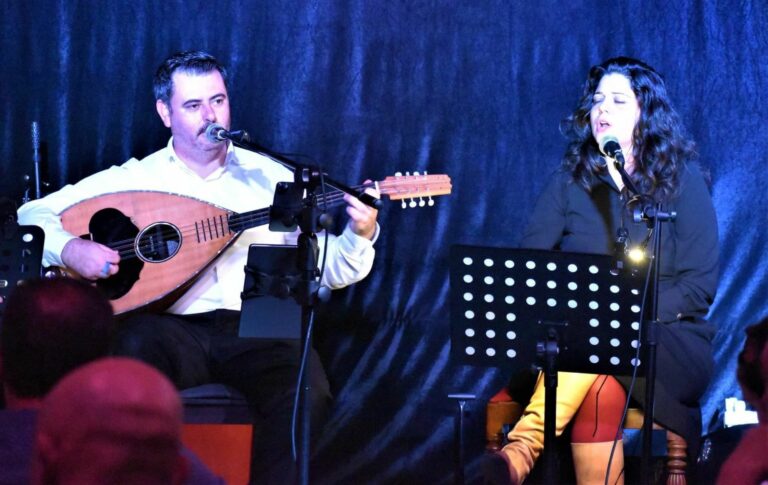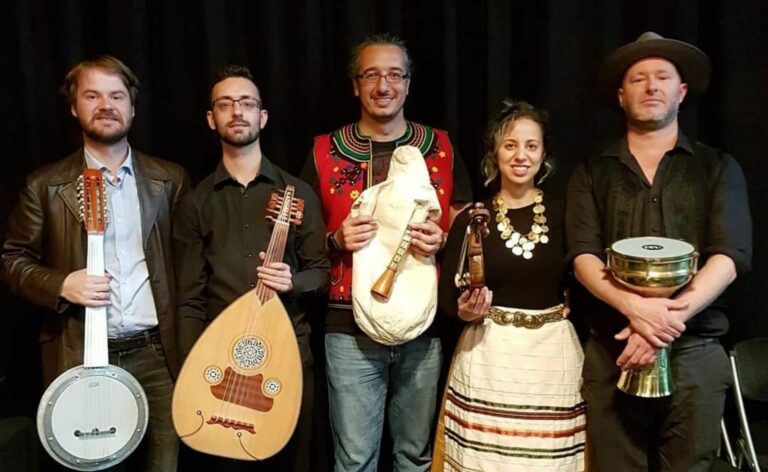It is no secret that the Australian music industry has been dug a grave due to ongoing COVID-19 lockdowns, with many workers in the industry ineligible for JobKeeper support which ended in late March.
Melbourne and Sydney based artists are still feeling the pinch, since cases have continued to grow for the better part of the last two months.
It has become near impossible for artists and others involved in gig operations across the country to plan any tours or shows ahead of time due to border closures, snap lockdowns and a slow vaccination rollout.
According to data collection collated by the Australian Festivals Association and the Australian Music Industry Network, an estimated $94 million worth of income has been lost since 1 July alone.
Among those trying to make sense of how to bounce back in a rapidly dying economy are Greek-Australian bands Cats and the Canary, Banda Politika and Omados.
Melbourne-based Cats and the Canary bassist Odysseas Kripotos says the band has had to reschedule a Sydney event that was initially set for 2020, at least three times, having to miss out on the September show of this year due to lockdowns across both cities. The stop-starting of the industry is weighing down on them.
READ MORE: This year’s Lonsdale St Festival, an ode to Melbourne’s Greek music scene
“Apart from the financial costs, it’s demoralising. The last time we all caught up was back in May and now we’re in September, so we haven’t seen each other for four months. And in the process, we also lost two of our members. It’s this inaction….You can say I’m going to practise but then you go, ‘when are we going to get out?’. For bands like us, that want to do something more creative because we do covers, and take a song and put it on a different level, we don’t just play the chords and everybody has fun,” Mr Kripotos told Neos Kosmos.
“It’s very demoralising because we can’t see each other and we can’t get into the process and mindset, in order to start producing it all.”
As the bands awaits the verdict on whether or not their gig will go ahead next year, Mr Kripotos stresses why its so important to support the artists in our community.
“Greek music groups carry part of our identity and they increasingly carried it for many, many years. The Greek-Australian music scene is so powerful because it reflects the need of Greek Australia and Greek like myself, to listen to one type of music that speaks to the heart, because that’s what it does, regardless of whether you’re second or third generation,” he said.
“Many were raised with different songs, different melodies, but there are still those kinds of song and melodies, that I believe reminds you of a culture that’s running through your veins.”

READ MORE: The young leventes carrying on the music of their family’s motherland
Banda Politika had a gig cancelled the day before they were set to hit the stage back in late June, as restrictions were announced to be put in place from around “two, three o’clock in the afternoon” explained musician Michael Platyrrahos.
The venue is yet to get back to Banda Politika about rescheduling.
“The venue just cancelled everything. They’ve got all these shows other than ours…I don’t know what’s going on to be honest,” Mr Platyrrahos said.
Although Mr Platyrrahos has a regular day job, much like many musicians in today’s economy, and his financial situation isn’t as direly impacted as his other friends in the industry, there are still great ‘hidden’ costs to these lockdowns.
“The greatest impact is that we would have made, 500, 600 bucks each that night on a sold-out show. And that’s what we’ve lost plus all our labour to prepare for that,” he explained.
“All these shows, you have to prepare for them. You can’t just rock up and play, so there’s a lot of time and labour involved in the prep. No one is going to compensate you for that, and no one really understands that until the gig is finished and you get paid.”
Omados violinist Kat Stevens has been looking forward to the day where restrictions will be eased to allow music to be heard in bars, taverns and theatres once again. An issue to consider however, is whether there will still be many people left to perform for an audience.

READ MORE: Melbourne band Omados release new work with regional Greek dance music
“The financial costs that musicians may need to reconsider include moving, finding a different job and all that impacts on how available you are to do gigs. You know there’s a really real conflict of compromising your art, practising, being on topping of it all, being able to do concerts and then having to still ‘be normal’,” Ms Stevens said.
“I guess there’s a risk that you’ll lose musicians who were so available. The Greek community had brilliant musicians, amazing ones at the drop of a hat at a restaurant, at dances, at Live at the Greek. And there’s a risk of that being lost. People are getting really tired and thinking ‘What is the point?’”
As innovative as it might have been for these artists to have initially moved to online methods of ‘gigging’, there are still so many gaps pertaining to accessibility, from technological illiteracy to ease of access. Overall, Ms Stevens says this method of performance is not necessarily viable for the long-term.
“I think now people have the Zoom fatigue, but I also think online is hard to sustain in the long term. I think it should always be an option though. I also work in disability so my I’m a little biased based on my experiences. My bias is always looking at accessibility….There should be parallel things running but performing online is difficult. The one thing that I would like to see, if it can happen, now that we’re talking about capacity, is doing smaller scale performances outdoors,” she said.
“Instead of a big hall, which would normally done, are there little pockets around Lonsdale St, for example, with big stages that that could be used as little performance spaces. Can the audience be rotating rather than the musicians?”
There is still hope that there will be a chance for musicians, music venues and staff to bounce back in light of vaccination numbers rising. In the meantime, Ms Stevens invites those in the industry to have a chat about their experiences with her through her social media channels.